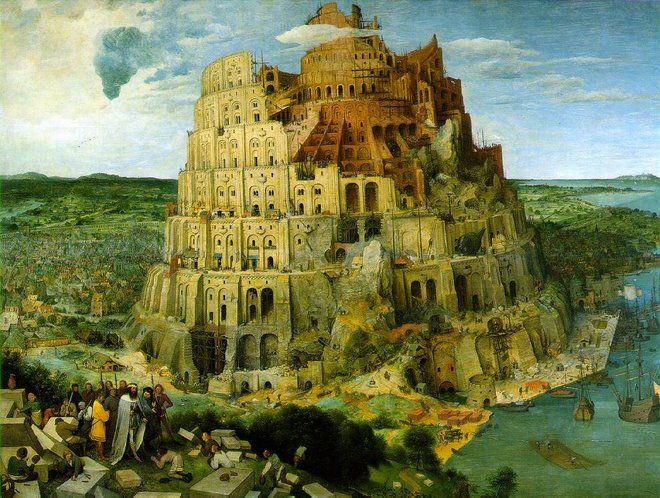 Max Cilla is the master of the traditional flute; his country [Martinique] calls him “Le Père de la Flûte des Mornes” (“The Father of the Mountain Flute”).
Max Cilla is the master of the traditional flute; his country [Martinique] calls him “Le Père de la Flûte des Mornes” (“The Father of the Mountain Flute”). The mountainous regions in the French West Indies are called the “Mornes”. The term also refers to the deep countryside, “the big forests”, which inspire mystical dreams and feed the imagination of storytellers and poets. The “Mornes” used to be the hide-out of run-away Negroes, those who by their acts of courage and revolt had thrown off the bonds of slavery and were persecuted by the colonialists. The “Mornes”, our mountains are rich in history and life, where the breath of the spirit is felt and heard more intensely: the house of the Gods, as legends have it. It is in the “Mornes” of Martinique, in the middle of the countryside, deep in the forests, where the bamboo flute was born. It is a transverse flute with six holes, and went by the popular name of “toutou’n bambou” (the sonorous bamboo tube).
[…] Max Cilla, as the precursor of the “toutou'n bambou”, became conscious that a sum of various attributes had gathered around the “Mornes” which predisposed them to be the symbol of natural and cultural values, the symbol of the authenticity of being, and resistance to all attempts of alienation and indoctrination.
With deep conviction he went about to restore this musical instrument of the countryside and to give it the place it deserved in organology; from the outset he had the inspiration to legitimize it by naming it “la Flûte des Mornes”. He has made a living symbol of this flute whose breath propulses and animates the energies of Life, of Joy, of Light... Indeed, as from 1970, Max Cilla has defended the qualities of this flute, not only as a specific instrument, but also as the vehicle of a style of musical expression typical of our countryside. He had to persevere for long years to see the flute emerge, in a context where the general alienation condemned it to disappear. His research enabled him to work out a precise method of making this flute in all tonalities, of creating a tablature, thus proposing a more extended field of technical possibilities.
At the same time, he composed tunes with a traditional character, and others more elaborate, which today are part of the classical tunes of Martinique.
All this has contributed that, in the early 1980's, art critics, the entire press of the country and public opinion, recognized him as the precursor of the traditional flute and gave him the title of “Le Père de la Flûte des Mornes”.
Author, composer, instrumentalist, flute maker, leader of a musical group, whose compositions are inspired by the rural oral tradition of Martinique, Max Cilla, after a 30-year career, offers music of both universal spirituality and deep roots, full of life, joy and “dancing”: a harmonious alliance of melodies and rhythm. (MaxCilla.com; Spanish version here; French site here)
Link in comments
 «Tunisian born, Parisian musician Jean-Pierre Smadja (Smadj) grew up listening to Oriental, Brazilian, funk, soul, and folk music. Entering a jazz school at age 15 due to his intense interest in the guitar, Smadj’s musical development came to be characterized by transforming traditional jazz styles into eclectic sounds. This interest in the mechanics of making music led Smadj to pursue a degree in sound engineering, which led to a fruitful career as a recording & sound engineer for famous classical and folk musicians. Releasing his first album in 1994, it wasn’t until 2000 that Smadj became recognized on an international scale for his signature blending of acoustic and electronic sounds on “Equilibriste”, which would ascend on the “European World Music Charts” to the number 4 position. In 2002, Smadj joined fellow “ud magician”, French musician Mehdi Haddab, for a special project that would transport the oud to the 21st century in “DuOuD”. Supporting their triumph of an album with a 2 year world tour, the album also received 2nd place in the “Best Album” category at the prestigious BBC World Music Awards. In 2003, Smadj joined master percussionist Burhan Öçal for “Burhan Öçal & The Trakya All Stars featuring Smadj” and in 2005 he stepped behind the scenes to serve as artistic director for Burhan Öçal’s “New Dream”. Smadj continues making music in the city where east meets west, Istanbul.» (Wikipedia)
«Tunisian born, Parisian musician Jean-Pierre Smadja (Smadj) grew up listening to Oriental, Brazilian, funk, soul, and folk music. Entering a jazz school at age 15 due to his intense interest in the guitar, Smadj’s musical development came to be characterized by transforming traditional jazz styles into eclectic sounds. This interest in the mechanics of making music led Smadj to pursue a degree in sound engineering, which led to a fruitful career as a recording & sound engineer for famous classical and folk musicians. Releasing his first album in 1994, it wasn’t until 2000 that Smadj became recognized on an international scale for his signature blending of acoustic and electronic sounds on “Equilibriste”, which would ascend on the “European World Music Charts” to the number 4 position. In 2002, Smadj joined fellow “ud magician”, French musician Mehdi Haddab, for a special project that would transport the oud to the 21st century in “DuOuD”. Supporting their triumph of an album with a 2 year world tour, the album also received 2nd place in the “Best Album” category at the prestigious BBC World Music Awards. In 2003, Smadj joined master percussionist Burhan Öçal for “Burhan Öçal & The Trakya All Stars featuring Smadj” and in 2005 he stepped behind the scenes to serve as artistic director for Burhan Öçal’s “New Dream”. Smadj continues making music in the city where east meets west, Istanbul.» (Wikipedia)











